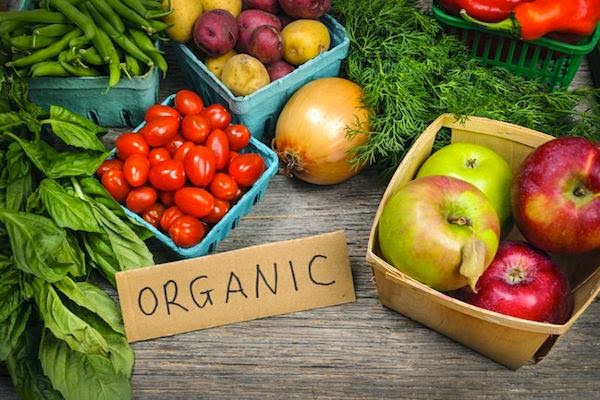Scientists Review 343 Studies To Evaluate Benefits of Organic Food
by Arjun Walia
The reasons to eat organic just got bigger, another study (among many) examining conventionally grown produce vs organically grown produce has made its way into the public domain. This one was conducted by researchers and scientists who examined 343 peer-reviewed studies to determine if organic food is really better for you compared to conventional produce.
The study was recently published in The British Journal of Nutrition and identified a clear difference between organic and non-organic food. (1)
Demand for organic foods is partially driven by consumers’ perceptions that they are more nutritious. However, scientific opinion is divided on whether there are significant nutritional differences between organic and non-organic foods, and two recent reviews have concluded that there are no differences. In the present study, we carried out meta-analyses based on 343 peer-reviewed publications that indicate statistically significant and meaningful differences in composition between organic and non-organic crops/crop-based foods.(1)
Widget not in any sidebars
Organic Produce Is More Nutritious
The study emphasized that the concentrations of a wide variety of antioxidants were found to be far greater in organic crops than those within conventional crops. Antioxidants are extremely important when it comes to human health. They are responsible for cleaning out multiple organs in the body, preventing cancer, heart disease, aging, neurological disorders and more. Glutathione is a great example; it contains sulfur chemical groups that work to trap and flush all the bad things like free radicals and toxins such as mercury and heavy metals in our body. This is especially important in our current world of heavy metal bombardment.
A group of compounds known as flavanones, for example, were 69 percent higher in organic produce. (1)
Many of these compounds have previously been linked to a reduced risk of chronic diseases, including CVD and neurodegenerative diseases and certain cancers, in dietary intervention and epidemiological studies. (1)
 It doesn’t stop there, the study also found significantly higher concentrations of pesticide residue to be present in conventional crops, approximately 4 times more so than in organic crops. Conventional crops also contained “significantly higher concentrations of the toxic metal Cd. (1)
It doesn’t stop there, the study also found significantly higher concentrations of pesticide residue to be present in conventional crops, approximately 4 times more so than in organic crops. Conventional crops also contained “significantly higher concentrations of the toxic metal Cd. (1)
While we are on the topic of pesticides, a recent study conducted by researchers from RMIT university, published in the journal Environmental Research found that an organic diet for just one week significantly (90 %) reduced pesticide (commonly used in conventional food production) exposure in adults.(2)
The research was conducted by Dr. Liza Oates as part of her PhD project and supervised by Professor Marc Cohen from RMIT’s School of Health Sciences. It was supported in part by a donation to RMIT University from Bharat Mitra, co-founder of Organic India Pty Ltd.
These pesticides have been linked to multiple ailments including cancer, Parkinson’s disease, Alzheimer’s disease, autism and more. You can find more studies and information about them HERE.
Organic Crops Contain Much Less Harmful Substances
Back to the present study:
In conclusion, organic crops, on average, have higher concentrations of antioxidants, lower concentrations of Cd and a lower incidence of pesticide residues than the non-organic comparators across regions and production seasons. (1)
There is a reason why millions of people all over the world are choosing organic foods. Using the same findings from this study, it is also reasonable to deduce that GM crops would fall in the same category as conventionally grown crops and thus be less nutritious and more chemically harmful for human consumption vs organic foods. This is also perhaps why multiple countries around the world have completely banned GM crops. People choosing organic and avoiding conventional and GM foods is a great example of how the consciousness of the planet is shifting, how people are becoming more aware and starting to question what is going on around them.
Related CE articles you might be interested in:
- New Study Links GMOs To Cancer, Liver/Kidney Damage & Severe Hormonal Disruption
- The 12 Most Chemically Ridden Produce Items You Should Buy Organic
- 10 Scientific Studies Proving GMOs Can Be Harmful To Human Health
- DNA From Genetically Modified Foods Can Be Transferred Into Humans Who Eat Them
Sources:
(1) http://csanr.wsu.edu/program-areas/m2m/research-areas/nutritional-quality/bjn-2014/
(2) http://www.sciencedirect.com/science/article/pii/S001393511400067X
All other sources are highlighted throughout the article.
Arjun Walia writes for Collective Evolution, where this first appeared.




